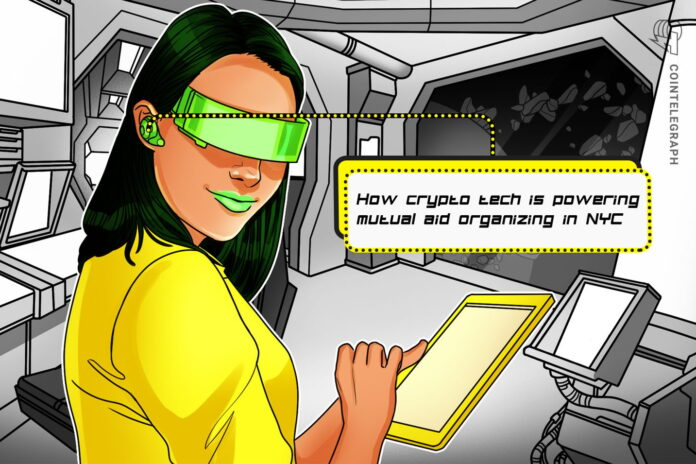The efforts of many charities are often hampered by the red tape of bureaucracy, and the presence of hierarchical structures within these organizations can complicate matters even further.
To bypass these inefficiencies PactDAO co-founder Marisa Rando suggests that those aiming to distribute aid focus on being “active,” as this is the root word in the term “activism.” Rando hinted that the presence of hierarchical structures within charitable organizations leads to bias in the distribution of aid, whereas adopting a fully decentralized model encourages activism from givers and recipients.
This results in the foundation of stronger communities and more objectivity and fairness in the selection and distribution of aid. This is the true intent of mutual aid and grassroots activism.
On Episode 11 of The Agenda, hosts Jonathan DeYoung and Ray Salmond were joined by Rando, who discussed the key differences between charity and mutual aid and shared several of the initiatives being spearheaded by PactDAO.

When skepticism turns to optimism
Initially, Rando and others at PactDAO were generally skeptical about cryptocurrency, but after a year of successfully fundraising and connecting New York City residents with various mutual aid organizations, a few members began to explore more efficient ways to democratically run the organization and distribute aid.
Recurring challenges with trying to establish a democratically managed bank account eventually led to PactDAO exploring the components of Web3.
Rando said:
“We had been kind of talking to lawyers and talking to accountants and trying to design what we would later find out is a multisig. We were like, how do we create this bank account in which, you know, multiple groups can be involved in it? But, you know, there’s guardrails. There’s a democracy built into it. And I remember explaining this to a friend, and they were like, this is what I’ve been talking to you about. This is this crypto stuff. This is what our DAO runs on. It’s called a multisignature wallet. And I was like, I don’t know. I don’t want to hear about any of this crypto stuff.”
Fortunately, the group’s views on crypto, Web3 and nonfungible tokens (NFTs) changed after Rando connected with “some like-minded people in this space, people who I’m close friends with now and have become good mentors and partners and people that I work with.”
Related: DAOs can become a disaster more quickly than you think
DAOs democratize activism and the distribution of aid
When asked about the reasons for transforming Pact Collective into a decentralized autonomous organization, Rando said:
“Why we‘ve chosen the approach of a DAO or being more Web3-leaning is, one, because crypto has provided a really solid funding source that, you know, isn’t totally tracked by the government. And so that’s exciting. I think that is like kind of opened up a lot of doors in terms of just the wealth of funding or the access to funding that we’ve been able to achieve.”
As far as who gets to actually be a member of the DAO and make financial decisions, Rando, said that that role is reserved for local community organizers and activists, as “they are the most equipped to make those decisions.”
To hear more from Rando’s conversation with The Agenda — including PactDAO’s current initiatives, goals for 2023 and the current status of mutual aid — listen to the full episode on Cointelegraph’s Podcasts page, Apple Podcasts or Spotify. And don’t forget to check out Cointelegraph’s full lineup of other shows!
Magazine: Building community resilience to crises through mutual aid and Web3
This article is for general information purposes and is not intended to be and should not be taken as legal or investment advice. The views, thoughts, and opinions expressed here are the author’s alone and do not necessarily reflect or represent the views and opinions of Cointelegraph.
Hits: 0










